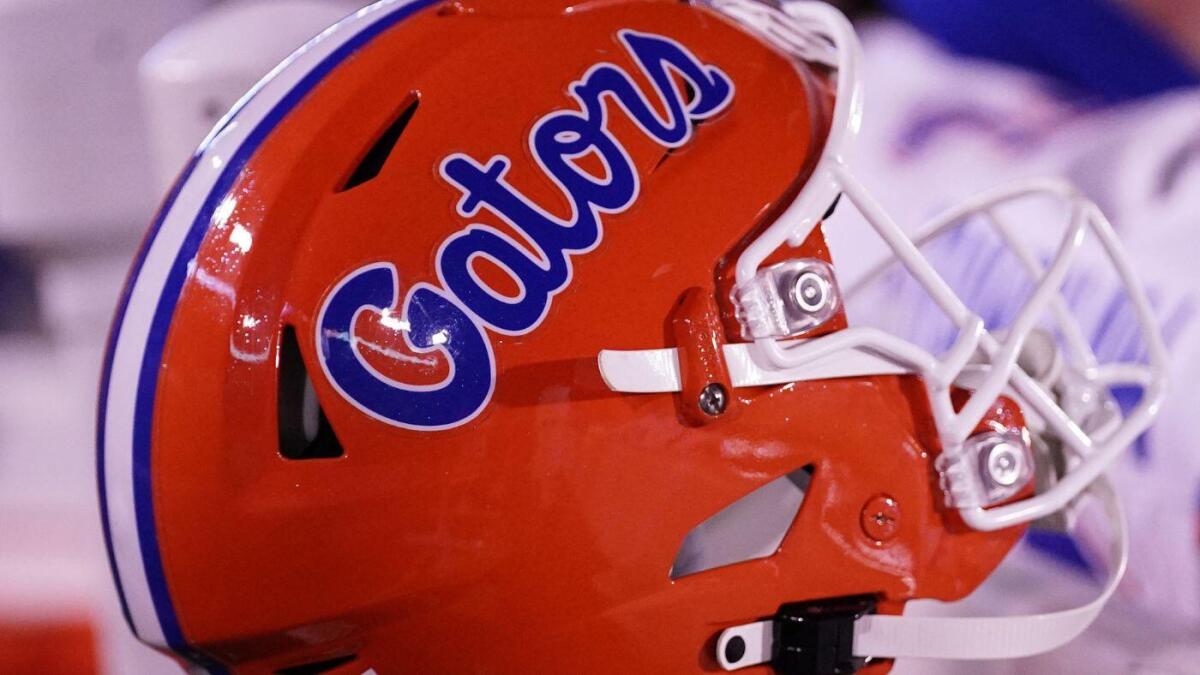The Arrest of Devon Manuel: A Critical Examination of Consequences and Responsibilities
Introduction: A Moment of Reflection
The arrest of Devon Manuel, a standout offensive lineman for the Florida Gators, has sparked a broader conversation about the intersection of athletics, personal responsibility, and legal consequences. This incident, involving charges of misdemeanor DUI and felony possession of a concealed weapon, serves as a stark reminder of the delicate balance between privilege and accountability that high-profile athletes must navigate. The ripple effects of Manuel’s arrest extend beyond the courtroom, touching on the integrity of college athletics, the legal system’s approach to young offenders, and the personal growth of individuals who find themselves at a crossroads.
The Incident: A Cascade of Poor Decisions
The chain of events leading to Manuel’s arrest began with a routine traffic stop for speeding. Driving 60 mph in a 45 mph zone may seem like a minor infraction, but it set in motion a series of escalating circumstances that culminated in serious legal trouble. The presence of marijuana odor in the vehicle prompted further investigation, revealing a Glock 20 firearm and a THC vape pen. Each discovery compounded the severity of the situation, illustrating how a single poor decision can snowball into a life-altering event.
The DUI Charge: A Misdemeanor with Far-Reaching Consequences
While classified as a misdemeanor, a DUI charge carries significant weight, particularly for a college athlete. The legal penalties—fines, license suspension, and potential jail time—are just the beginning. For Manuel, the real stakes lie in the potential fallout from the University of Florida and the NCAA. Athletic programs often have zero-tolerance policies for substance-related offenses, meaning suspension or even expulsion could be on the table. Beyond the immediate consequences, a DUI conviction could tarnish Manuel’s reputation and diminish his prospects in the NFL, where teams prioritize character and reliability in their draft picks.
The Felony Weapon Charge: A Legal and Moral Crossroads
The felony charge of possessing a concealed weapon without a permit is arguably the most concerning aspect of Manuel’s arrest. Florida law treats this offense as a second-degree felony, reflecting the state’s stringent stance on firearm regulations. The presence of a Glock 20, a powerful semi-automatic pistol, raises questions about Manuel’s judgment and awareness of the law. Felony convictions come with severe penalties, including prison time, a permanent criminal record, and the loss of certain civil rights. For an aspiring professional athlete, these consequences could be career-ending.
The Glock 20: Symbol of Responsibility and Risk
The choice of firearm in this case is noteworthy. The Glock 20 is a high-caliber weapon known for its reliability and stopping power. While legal to own, its presence in Manuel’s vehicle—concealed and without a permit—underscores a broader issue: the responsibility that comes with firearm ownership. Athletes, like all citizens, must understand and adhere to the laws governing weapons. Ignorance or negligence in this area can have dire consequences, as Manuel is now learning.
The THC Vape Pen: A Reflection of Evolving Attitudes
The discovery of a THC vape pen adds another layer to the narrative. While attitudes toward marijuana are shifting across the U.S., Florida remains firm in its prohibition of recreational use. Even if Manuel had a medical marijuana card, the presence of the vape pen in his vehicle suggests a disregard for the law. This detail, while perhaps overshadowed by the more serious charges, contributes to the overall picture of poor decision-making. It also highlights the challenges young adults face in navigating evolving legal and social norms.
The Broader Implications: Athletics, Reputation, and Accountability
Manuel’s arrest is not just a personal crisis; it is a moment of reckoning for the University of Florida’s athletic program. Colleges and universities are increasingly held accountable for the behavior of their student-athletes, both on and off the field. Incidents like this can damage a school’s reputation, affect team morale, and deter potential recruits. It is a reminder that athletic programs must prioritize not only winning but also fostering a culture of responsibility and ethical conduct.
The Role of Legal Counsel and Due Process
As Manuel navigates the legal system, the importance of due process cannot be overstated. He is entitled to a fair trial, legal representation, and the opportunity to challenge the evidence against him. A skilled attorney can help him understand the nuances of the charges, explore potential defenses, and negotiate a favorable outcome. This process is not just about avoiding punishment; it is about ensuring that justice is served and that Manuel’s rights are protected.
A Path Forward: Learning from Mistakes
This incident presents an opportunity for Manuel to reflect, grow, and take responsibility for his actions. The road to redemption will not be easy, but it is possible. By acknowledging his mistakes, seeking help if needed, and demonstrating a commitment to positive change, Manuel can begin to rebuild his reputation and career. His story can also serve as a cautionary tale for other young athletes, emphasizing the importance of making wise choices and understanding the consequences of their actions.
Conclusion: A Moment of Clarity
The arrest of Devon Manuel is a sobering reminder of the fragility of reputation and the weight of responsibility. It is a story of poor decisions, legal consequences, and the potential for redemption. For Manuel, the path ahead is uncertain, but it is also an opportunity to learn, grow, and emerge stronger. For the broader world of college athletics, it is a call to action—to prioritize integrity, accountability, and the well-being of young athletes. In the end, this incident is not just about one player’s mistakes; it is about the values we uphold and the lessons we choose to learn.

